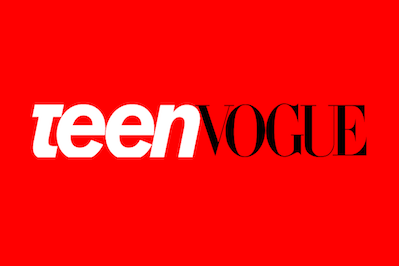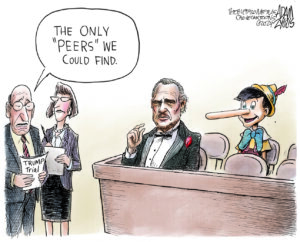Teen Vogue Comes Out Swinging Against Donald Trump
Over the weekend, Teen Vogue published an excoriating op-ed headlined “Donald Trump Is Gaslighting America.” The piece went viral, signaling that progressive opposition to the incoming administration may come from what seems to be the unlikeliest of places.
Teen Vogue
Over the weekend, Teen Vogue published an excoriating op-ed headlined “Donald Trump Is Gaslighting America.” The piece went viral, and with it, a signal that progressive opposition to the Trump administration may come from what seem to be the unlikeliest of places.
The piece by Lauren Duca “explained the president-elect’s strategy of lying so frequently and egregiously that the public are left not knowing what is true or false (a manipulative technique known as “gaslighting” after the 1938 play Gas Light),” wrote Hannah Jane Parkinson at The Guardian. Trump’s “rise to power,” wrote Duca, “has awakened a force of bigotry by condoning and encouraging hatred, but also by normalising deception.”
Parkinson continued:
It’s not quite the mad-about-the-boy talk one might think of when it comes to teen magazines and, by extension, their readers. But Duca’s piece isn’t a blip for Teen Vogue. While other magazines are publishing ethically dubious trend pieces on the “fashy” haircuts of white nationalist Richard Spencer and his peers, Teen Vogue has been ensuring its readers know that Vice-President-elect Mike Pence voted against the Ledbetter Fair Pay Act and once said, referring to abortion law, that he “longed for the day that Roe v Wade is sent to the ash heap of history.”
There are a few reasons the magazine, which is printed quarterly but has a wide web and social media presence, has come out fighting. First, it doesn’t have to toe the same line many publishers do, terrified of losing access to Trump. Teen Vogue probably does not have access to Trump. When the tiny-fisted tantrum of a man rips press credentials from outlets such as the Washington Post for daring to ask questions, the danger is that the press will be cowed into taking an artificially softer line. Teen Vogue isn’t caught up in that game.
Second, teen mags and kids’ books and TV shows have always been more renegade than adults give them credit for: think JK Rowling smuggling political lessons for muggles into her books, or the pro-immigration story of Paddington Bear. It used to be that adults didn’t notice this subterfuge because they weren’t paying attention; now the misapprehension comes more from the pronounced tendency to dismiss the thoughts and culture of Generation Y and all who come afterwards.
But perhaps the main reason for Teen Vogue’s success is Elaine Welteroth, who became editor-in-chief in May. Welteroth is a rare editor of colour in a glossy magazine industry weighed down as much by whiteness as by insert advertising. At 29, she became the youngest editor-in-chief in Condé Nast history, and only the second African-American.
Since Welteroth became editor, the magazine’s journalism has included a video report from the Standing Rock protest, a piece about recreational drugs being used to treat depression, and the exposure of homophobic tweets of Republican politicians. Duca’s op-ed might have gone viral, partly due to an element of surprise – Teen Vogue published this! – but it isn’t surprising to those of us who have been reading the magazine.
—Posted by Alexander Reed Kelly
Independent journalism is under threat and overshadowed by heavily funded mainstream media.
You can help level the playing field. Become a member.
Your tax-deductible contribution keeps us digging beneath the headlines to give you thought-provoking, investigative reporting and analysis that unearths what's really happening- without compromise.
Give today to support our courageous, independent journalists.






You need to be a supporter to comment.
There are currently no responses to this article.
Be the first to respond.